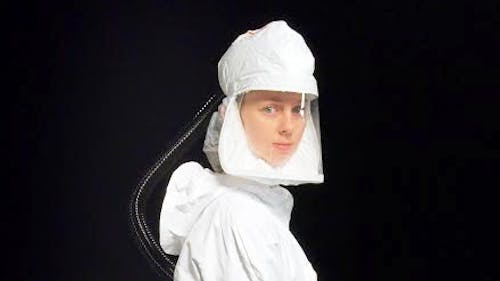Alumna studies influenza virus for CDC

Every autumn, people get a flu shot in the hope of not falling seriously ill.
Jessica Belser, a Class of 2003 alumna, works at the Centers for Disease Control and Prevention's (CDC) Influenza Division to study the pathogenesis and transmission of the virus, or how the virus develops and spreads.
Belser has worked with similar viruses in the past, including H5N1, or the bird flu, as well as the Ebola virus.
She works in a high-containment facility, where many precautions are taken to prevent the virus from being spread outside of the laboratory. The precautions include stripping down, putting on scrubs, a Tyvek suit, a double layer of gloves and a respirator with High Efficiency Particulate Air (HEPA) filter before entering the lab, she said.
“That protects me from getting in touch with the virus, as well as making sure that nothing is coming out with me inadvertently, that could then be used to infect other people,” she said.
The Influenza Division is responsible for safety protocols ranging from determining the influenza viruses that could be risky to human health, to the viruses that are suitable for vaccine preparation, Belser said.
They are able to provide information to the public about the dangers of these viruses and how they spread, so that people who come in contact with them often, such as doctors, can better protect themselves, she said.
“The data that we get from our experiments can help guide other groups at the CDC, as well as policy and lawmakers to determine how severe the risk to human health might be,” Belser said.
When the Ebola outbreak took place, the CDC’s Ebola response team needed extra personnel to work with the large scale and scope of the epidemic. Due to her lengthy experience in a high-containment facility, she was asked to contribute and perform field work, Belser said
She went to Sierra Leone twice, once in the winter of 2014, and again this August, to conduct diagnostic testing for the country. She performed real time polymerase chain reaction (PCR), a method used to amplify the amount of DNA available to determine if there is a presence of Ebola, she said.
Belser conducted undergraduate research under Lori Covey, a professor in the Department of Cell Biology and Neuroscience. She knew she wanted to pursue research in the future, so joining Covey’s lab and studying immunology was a significant opportunity, she said.
Undergraduate students should not be discouraged about being unable to find lab work immediately, because eventually an opportunity will come. Belser was not immediately accepted into a lab, but she was still able to accomplish her dream of working at the CDC, she said.
“I thought ... ‘Oh, that’s never going to happen for me.’ But then I thought, ‘Well, why not try and shoot for my pipe dream?’ And that’s what ultimately led me here,” Belser said. “Take advantage of the opportunities at Rutgers, and they will put you in the right direction for where you want to go.”



